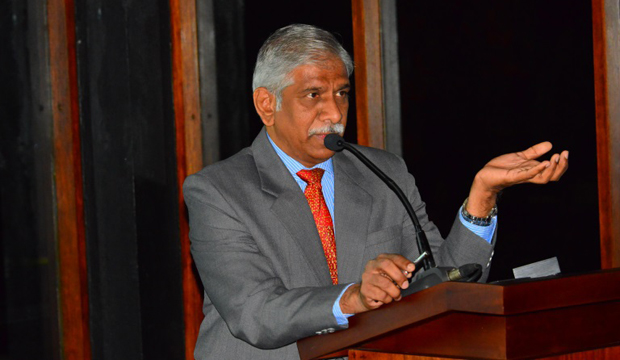January, 21, 2016

Since Anton van Leeuwenhoek, commonly known as the ‘Father of Microbiology’ first observed bacteria and other micro-organisms using a single-lens microscope which he designed himself in the year 1676, modern Medical Microbiology has made great advances in the recent past while quietly revolutionizing the study of microscopic organisms.
Microbiology today plays a significant role in adequate clinical management of infectious diseases with medical professionals the world over relying on Microbiology laboratories on a day to day basis for the accurate identification of the causal microorganisms and providing reliable information on its antimicrobial susceptibility.
In the modern era automation of microbiology has taken giant strides with automated laboratories dependent on robotic processes being considered as standard in both academic and large community hospital settings. Driven by a variety of factors, the level and degree of automation in clinical microbiology laboratories are definitely poised for a dramatic change.
However as recognized by Paul P. Bourbeau and Nathan A. Ledeboer in their paper titled Automation in Clinical Microbiology, in recent years even though automation has steadily spread throughout the clinical chemistry and clinical hematology areas of diagnostic laboratories, clinical microbiology laboratories have largely been excluded from this trend. Therefore even though Automated and semi-automated systems have been available for some years the field has not fully realized its potential for rapid diagnosis. Therefore despite automation being introduced as early as the 1960’s starting simply with the plating instruments, Sri Lanka as well is yet to introduce this revolutionary technology to Medical Microbiology locally.
Accordingly in a bid to develop the field of Microbiology in Sri Lanka Professor of Neuromicrobiology, National Institute of Mental Health and Neurosciences in Bangalore, India Dr. R. Ravikumar was recently invited to speak to a gathering of leading local Microbiologists and members of the council of Microbiologist, Sri Lanka.
At the discussion facilitated by Analytical Instruments (Pvt) Ltd, a leading local medical diagnostic products distributor, Dr. Ravikumar shared his expertise and experiences of the automation of microbiology at his institution.
Since its inception, while clinical microbiology has been dependent on a highly technical and skilled workforce to receive, process, and interpret results from a wide variety of clinical specimens with limited aid from automation, Dr. Ravikumar pointed out the various errors that can occur in clinical microbiology and its other downfalls that can seriously affect laboratory test results.
“It is through standardization of laboratories that human errors can be eliminated” he said adding that this could be achieved through automation. “Automation increases efficiency, productivity while also reducing the potential of errors and repeat testing” he said.
Matrix-assisted laser desorption ionization–time of flight (MALDI-TOF) mass spectrometry (MS) and the adoption of liquid microbiology specimen transport have allowed microbiology laboratories to simplify collection and identification systems, creating a workflow that can be also optimized with automation.
The ever-increasing specimen volumes and fewer available skilled workers have also led laboratories to increasingly seek automated solutions for microbiology.
According to Dr. Ravikumar with the increasing demand for laboratory testing as well as the expectation of overall testing volumes to increase by 15 - 20 per cent in the next 20 years automation is indeed the way forward for microbiology.
However with its many advantages Dr. Ravikumar too presented the gathering with disadvantages of automation in order to give them a balanced view of the technology. “The investment for such a system will be significant” he said adding that while it can reduce staff causing loss of employment automation has no one size fits all solution.
Photo caption: (Above) Dr. R. Ravikumar
Video Story